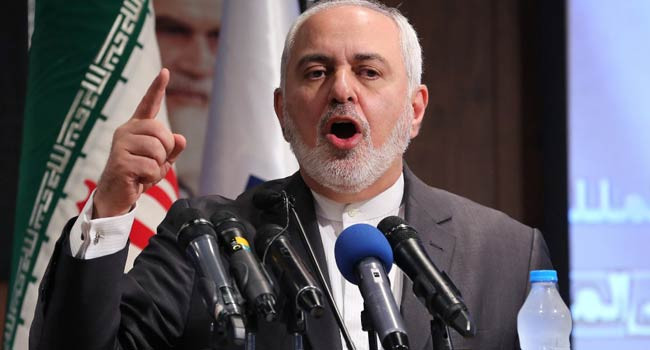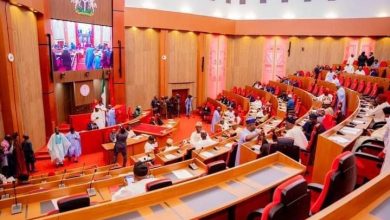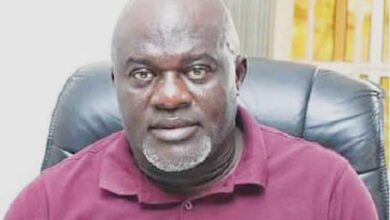
Iranian Foreign Minister Mohammad Javad Zarif told CBS News correspondent Elizabeth Palmer on Tuesday that his country would retaliate for the U.S. strike that killed a top Iranian general, but he said that “unlike Trump” has threatened to do, the Islamic Republic will respond in a proportionate manner “against legitimate targets.” Zarif would not tell Palmer what Iran’s leaders consider legitimate targets, nor when Iran would launch its retaliation.
“The international law of war is very clear about legitimate targets,” he insisted, pointing Palmer to the Geneva Convention which lists such targets as military or infrastructure sites.

The U.S.-educated diplomat blasted the Trump administration as “a regime that has no respect for international law, threatens to commit war crimes — attacking cultural sites.”
It was a reaction to Mr. Trump’s threat over the weekend to attack 52 sites identified as targets inside Iran should the country retaliate for the U.S. airstrike that killed Major General Qassem Soleimani on Friday. Mr. Trump has insisted that the U.S. would be within its rights to strike “cultural sites” in Iran.
Palmer pressed Zarif to clarify whether Iran’s response would be carried out by the Islamic Republic’s military, or by its many allied proxy forces across the Middle East, such as the Hezbollah militant group based in Lebanon, or the Shiite militias it backs in Iraq. The foreign minister denied that Iran has control over such groups, and said whatever retaliation they might seek would be separate and apart from Tehran’s own.
“We do not have proxies. You must have seen in the streets of Iraq that we have people, not proxies. Those people are not controlled by us because they’re not our proxies. They’re people with emotions, independent thinking, and that is why I said, what they will do is not controllable by Iran.”
Zarif said the U.S. killing of Soleimani was “an act of war done in a terrorist, cowardly operation, and Iran will take an appropriate response… Action by the U.S. has consequences that will happen, and I believe it has already started.”
He pointed to the Iraqi parliament’s work on legislation that would force American troops to withdraw from the country as evidence of the first consequence of Mr. Trump’s “maximum pressure” policy on Iran: ‘Maximum pressure is dead, as is the U.S. presence in our region.”
President Trump has repeatedly warned that any further Iranian action that kills Americans would be met with a firm response, including strikes inside Iran against the targets his administration has identified.
Zarif also said the U.S. had denied him a visa to visit the United Nations headquarters in New York this week.
“That’s what we were told by the (U.N.) Secretary-General,” Zarif said. He said U.S. Secretary of State Mike Pompeo had called the U.N. and said the U.S. “didn’t have enough time to review my request, although the request had been made in 2019, in December 2019.”
A U.N. official confirmed to CBS News’ Pamela Falk that the Iranian delegation had called to hear what explanation Pompeo offered the global body.
In December, U.N. spokesperson Stephane Dujarric said both the Secretary-General and the U.N. Legal Counsel had “repeatedly conveyed their concerns, and the legal position of the Organization, to senior representatives of the host country (U.S.)” about complaints over visa denials. At that time it was Russia complaining that visas were being held up.
Iran’s U.N. Spokesman Alireza Miryousefi on Tuesday afternoon told Falk: “Last night, we were informed by the U.N. that, based on the information it received from the U.S., Foreign Minister Zarif’s visa to address the security council will not be issued, but we have not received any communication about it from the U.S. Mission, and we have no communication with the State Department.”
Without direct communication with the U.S., the Iran Mission has not been formally notified of a rejection of the U.S. visa application for the foreign minister.
Dujarric spoke with reporters Tuesday, saying that the U.N. Headquarters Agreement — the 1947 agreement between the U.S. and the U.N. that requires the U.S. to give visas to diplomats, with few exceptions — should be upheld.
First published on January 7, 2020 / 6:34 AM









